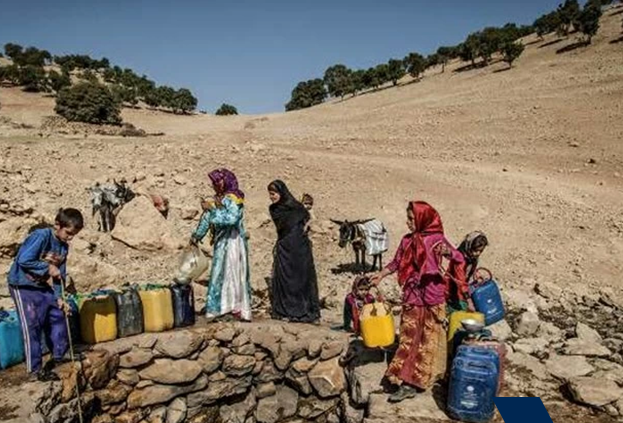Released Date
2022-06-12 | 22:15:44Working group : Forced and asylum related migration
We will achieve only environmental degradation and migration by looking at nature instrumentally.

Although the spread of instrumental rationality across all aspects of modern human life has resulted in human dominance of nature and the weakening of environmental discourses worldwide, the reach of this view is more pronounced in developing and less developed countries such as Iran, which are historically backward. It has resulted in environmental damage and disasters. In reality, one of the essential aspects that might explain the country's dreadful state of the environment is its hunger for progress and lack of adherence to its supply and requirements. The former head of Department of Environment, Isa Kalantari, illustrated the spread of this viewpoint. "Is it more vital for a petrochemical company with a $1 billion yearly income to produce two tons of fodder per hectare or 15 tons of $60,000 livestock meat?" Miankaleh Petrochemical, he remarked. Although this remark from the manager, who has been in charge of environmental decision-making for many years, is doubly disappointing, it mainly represents the country's ecological management discourse. Unfortunately, disregard for environmental concerns and the importance of technologically driven economic gains over social dimensions and development difficulties have resulted in ecological catastrophes, social discontent, and rising ethnic tensions in the country during the last few decades. Some people in rural regions whose economies rely on water and agriculture have been forced to shift to other places or migrate from rural to urban areas due to development projects such as dams and water transfer projects. These actions have resulted in the weakening of rural society and the formation of public resistance to unilateral choices that have targeted rural communities' land and water. In addition to the consequences mentioned above, authoritarian policies that forced people to migrate have increased the phenomenon of marginalization in large cities. Most of the residents of these people who lived in these communities were forced to abandon their towns and relocate to the borders of cities for different financial and natural reasons.
Iran faces unprecedented environmental crises, such as lake and river drying, dust storms, drought, and food shortages. Although Iran is not alone in this catastrophe, and the environmental crisis, particularly the water crisis, has become a worldwide concern, Iran's geographical position and environmental neglect placed the country in an acute and peculiar situation.
According to the World Resources Institute, 17 countries worldwide are experiencing acute water scarcity; Iran is in fourth place in this ranking. The same statistics are sufficient to demonstrate the country's condition regarding access to water resources and the country's catastrophic situation. Although climate change and population growth are identified as the primary causes of water scarcity and the consequent environmental crises across the world, the role of governments and human activities in managing or aggravating the water crisis has received less attention.
From the theoretical point of view, Various thinkers have attempted to provide a theoretical framework for analyzing the modern world's environmental crisis. However, the conceptual framework of German sociologist Max Weber and his emphasis on the concept of "instrumental rationality" may lead us to a more in-depth examination of the modern world's relationship with the environment. Instrumental rationality, according to Weber, aims to exert control over the environment. In other words, new science and knowledge serve humans as a tool for dominion over nature, so human's relationship with nature becomes coercive. It's as if human dominates the planet rather than resides.
Based on Weber's idea of instrumental rationality, the thinkers of the Frankfurt School view culture as a way of directing man's and society's activities through science and technology. Within The Dialectic of the Enlightenment, Adorno and Horkheimer saw the dominance and misuse of human civilizations as the development and request of modern social orders in the same way that has an estranged man from the typical environment and the mastery and devastation of the domain. Another thinker, Jürgen Habermas, critiques instrumental rationality and considers its anticipation of communicative rationality as the leading cause of human aggression against nature.
The fact is that the alarm of the environmental
crisis, especially the water crisis, has been sounded in the country for a long
time. Undoubtedly, if this process continues, the country will become
uninhabitable, resulting in increased migration not just from small towns and
rural areas to highly crowded cities but also from overseas.
- No Source
User Comments
- There is no comment!